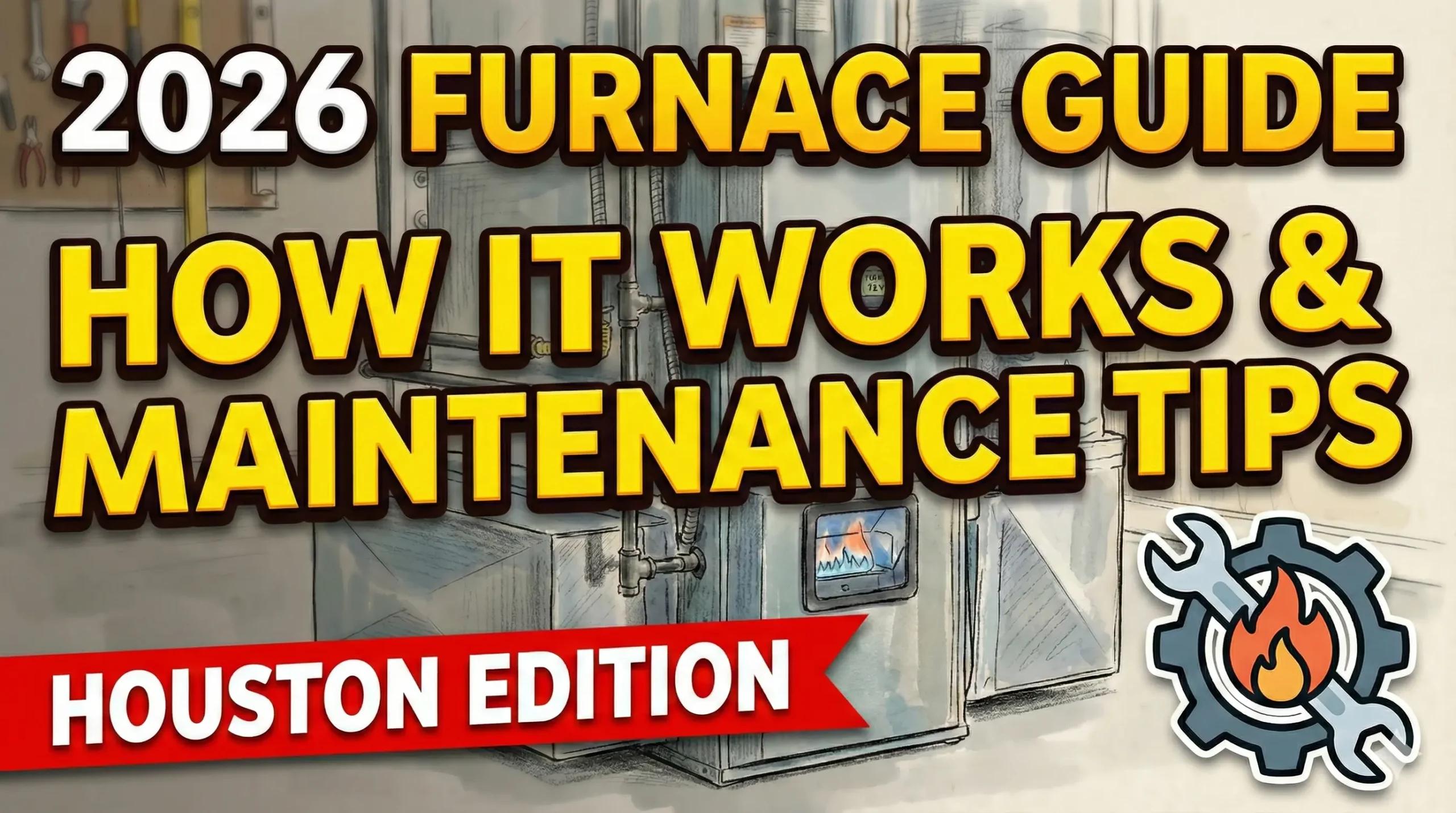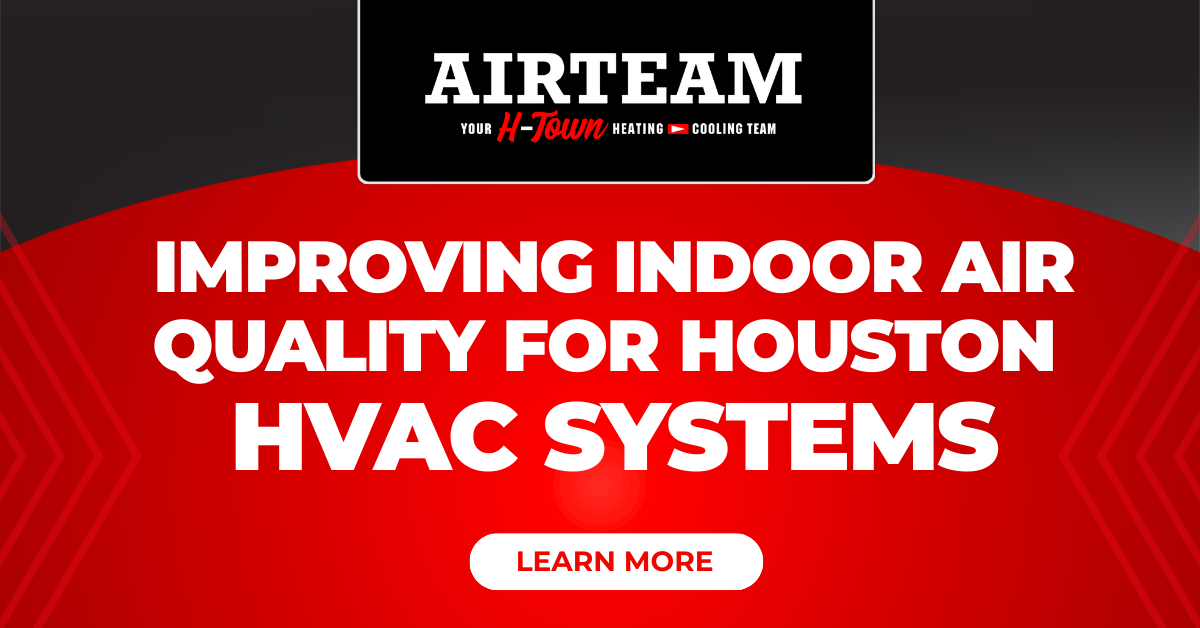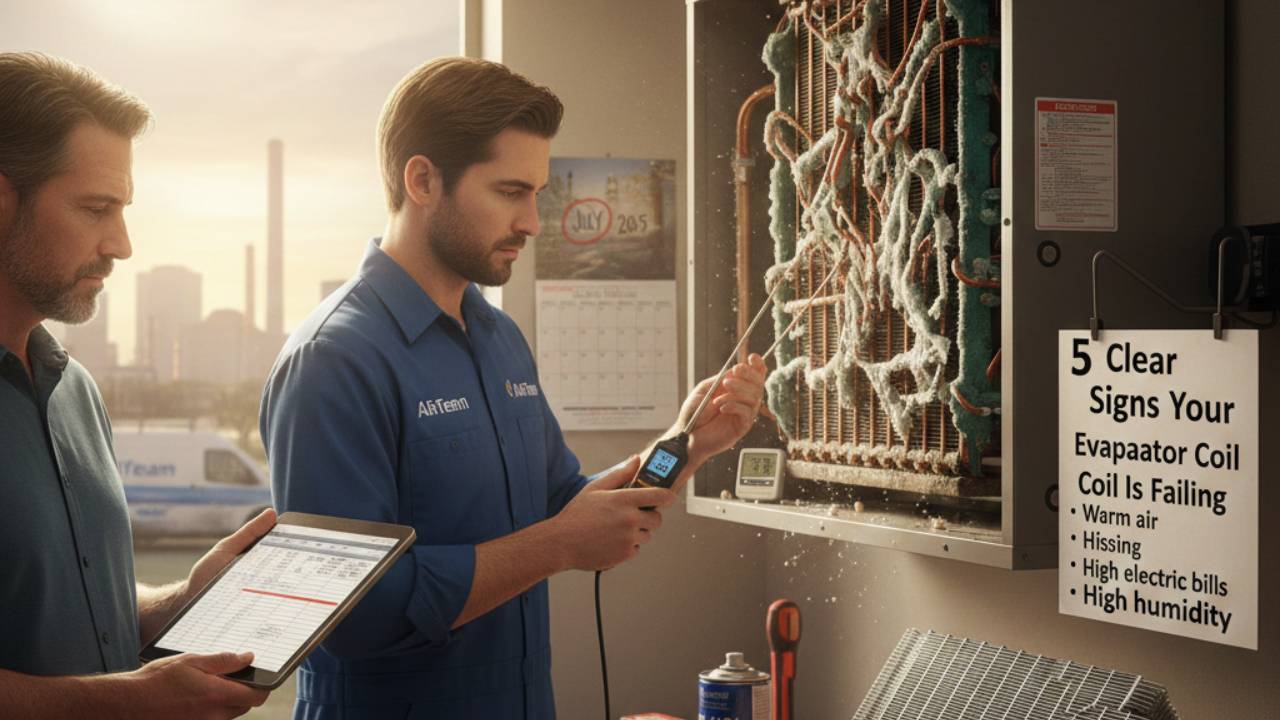Whether you’ve been here a few months or all your life, you know that Houston is well-known for its hot summers and winters that are mildish but humid. This climate region definitely presents some significant challenges in keeping your home at a comfortable temperature.
This can easily be compounded if your HVAC system it’s not working properly. Now, a lot of things can cause your HVAC system to run less efficiently than designed. However, not all of the things our internal within the unit itself. Some external issues can cause your system not to cool properly or heat the home as well as it could.
One of the most common external factors that we find in Houston homes when servicing our clients, is insufficient home insulation. Having insufficient insulation can be due to several issues:
- Old insulation
- Gaps between batts of insulation
- Having the wrong insulation for your climate zone
- Bad installation
- Not having enough insulation
How To Add Or Replace Insulation In Your Home
There are several ways you can insulate your home. Home insulation actually comes in different forms and methods of application, but the most common is fiberglass batts. This insulation comes in rolls that are paper lined and are installed between studs within your walls beneath the drywall. However, as home building technology has changed you can also have insulation blown in, apply cellulose foam, or use spray foam that expands. Each of these methods has its own pros and cons, so it really depends on your personal preference and a few factors regarding your home. These factors include the climate zone you live in, how large your home is, and of course, your budget. If you are unsure which insulation format is best for your home you should reach out to a professional who can make that determination for you.What Are The Benefits Of Proper Insulation?
Having proper insulation in your home has so many benefits that we don’t have the space to list them all here. However, here are the top three benefits:- Optimal Comfort- Having proper insulation helps your home maintain a comfortable temperature year-round in tandem with an efficient HVAC system. You don’t have to worry about your home constantly being either too hot or too cold. Insulation that’s installed properly and in the right amount per square footage makes your home more energy efficient.
- Higher Resale Value- When a home is well insulated it immediately fetches more money on the open market. Realtors know that a well-insulated home will save money on the cost of ownership. That proper insulation reduces HVAC load and holds the interior temperature longer, be it cold or warm. It’s also an indicator that the rest of the home is built to high standards.
- Reduced Noise- Did you know that having the proper insulation in your home also helps block sound waves. This is especially helpful in urban areas or if you live on a busy street that has a lot of traffic. It also dampens sounds within the home preventing echo and that tinny sound, evident in homes with poor insulation.
How Do You Know If Your Home Is Properly Insulated?
Now, we’ve discussed why proper insulation is important so the next logical question is, how do you know if your home is properly insulated. Well, there are a few things you can do to verify that fact. The first thing you want to do is check for air leakage around the window and door seals. You can do this by rubbing soapy water around the edges. However, that can get messy and is pretty inconvenient. What we recommend instead, is to call AIRTEAM techs to your home to help identify these leaks with our specialized equipment. We use tools such as thermal imaging cameras that can show us visually where air is leaking in your home. If you find that there are hot spots in your walls that means there’s a lack of sufficient insulation. However, you can have a professional contractor come out, pull your drywall, and reinsulate the home. Otherwise, if you’re pretty handy you can buy the materials from your local hardware store and do it yourself. No matter how you choose to get the job done and insulate your home, keep in mind it’s an investment with a great return in the form of energy savings. Also, it will extend the life of your air conditioning unit and boost its performance. Now, once you’ve verified that your home has sufficient insulation or if you remedy the issue of insufficient insulation there are still other ways you can help your HVAC system work better.Other Things To Help Your HVAC System
There are many other things you can do besides replacing or adding new insulation to help your HVAC system work more efficiently. These typically include:- Sealing air leaks– When you have air leaks in your home it makes your AC work harder than necessary. Rather than cooling or heating the air and recirculating it, which is most efficient, air leaks allow that conditioned air to escape. The most common place you’ll find air leaks is around windows and doors that have faulty caulk or worn-out weather stripping. If you’re handy, it’s an easy and affordable fix with a simple trip to Home Depot.
- Changing your air filter regularly- When your air filter is clogged with dirt, dust, pet dander, and other particles it can restrict the airflow to your system. A dirty air filter can restrict airflow and make your HVAC system work harder. This is why it is important to keep those filters clean by changing them every three to six months. It’s a good idea to do it more often if you have pets that shed.
- Keeping your condenser unit clean- Your condenser unit is the part of your HVAC system that is located outside usually against the side of your house. It is the core component of any air conditioning system and is exposed to the elements 24/7. If you don’t keep the condenser unit clean and free from debris it can really slow it down and create extra friction. This eventually will wear out your unit far quicker than its normal life cycle. All it takes is a water hose and a little bit of mild detergent.
- Having your HVAC system serviced regularly– when you service your air conditioning system regularly you’re staying ahead of any minor problems and keeping them from turning into major failures. Our MVP preventative maintenance plan takes care of all the hassle for you. We come out automatically and inspect your system at least twice a year to make sure it’s ready for the upcoming season. This allows us to see any parts that are starting to fail and replace them before they can do any damage.




